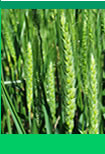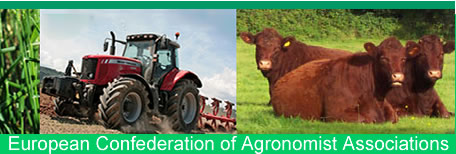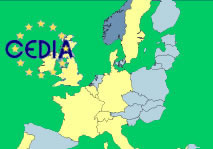


|
Rural Ireland 2025 Foresight Launch Presentation
at the Launch of the Report The rural economy is the primary focus of the report entitled Rural Ireland 2025 – Foresight Perspectives, launched by the Minister for Agriculture and Food. The Foresight Report addresses two crucial strategic questions: 1. What will the rural economy look like by 2025? 2. What do we need to do NOW to build a competitive and sustainable rural economy? 1. What Will the Rural Economy Look Like by 2025? Foresight is a very early wake-up call. Although not stated in these terms in the Foresight of Rural Ireland 2025, relative to their current dominant positions in the national and rural economies, Ireland may have essentially left agriculture; and foreign direct investment companies – or multinationals as they are more commonly known – could also largely have left Ireland by 2025. While this is not a likely perspective, neither can it be dismissed entirely. With (i) the projected contraction in farmer numbers to little more than 10,000 full-time commercial farmers by 2025, (ii) the fundamental rationalisation of diary and beef processing sectors, and (iii) the possibility that a large part of the manufacturing output from multinational companies could have moved to lower cost economies, neither agriculture nor foreign owner companies are likely to be the main driving forces of the national or rural economies by 2025. That is the research hypothesis underlying this Foresight Report. The primary purpose of the initiative is to present a perspective for the rural economy by 2025, which is realistically achievable, provided we act now. This is an imperative.
As further outlined below, there are several grounds to be doubtful of the long-term sustainability of the recent economic growth, especially as it relates to rural regions. To begin with, much of the growth was achieved through a confluence of fortuitous circumstances, and without any significant rise in underlying productivity. Allied to this, the multinational companies in Ireland are, with some exceptions, strongly oriented to the production of goods at a relatively low point in the value chain. These labour intensive industries are now open to the growing attractiveness of lower cost economies. It is not unlikely that a sizeable proportion of the manufacturing output of these companies will move to lower cost countries in central Europe and elsewhere. In these circumstances, employment in building and construction will not continue at current high levels.
The progressive loss of multinational companies, combined with a waning of the building and construction boom, and a downturn in agriculture, would have very adverse effects nationally, and would be very severely felt in rural areas where
Unlike in recent decades, most future growth must come from productivity gains. In relation to the continued competitiveness and sustainability of the rural economy, accessible jobs from growth among exporting companies will be of crucial importance. To achieve these strategic goals, Ireland must position itself in the knowledge economy.
2. Knowledge Economy – What Is It? Competitiveness & Sustainability, the two overarching EU goals, present substantial challenges to European industries and rural economies, especially its natural resource based sectors. The two policy goals are divergent – if not indeed in conflict, at least to some degree. Knowledge is the key to reconciling these important goals and rendering them more convergent. Countries that have the necessary knowledge base to achieve the optimum balance between, on the one hand, economic dictates and, on the other, social and environmental concerns, will have internationally competitive industries in the coming decades. In this regard, a knowledge economy could be defined as an economy which has the knowledge base required to achieve the crucial balance between the pursuit of price competitiveness and ensuring social and environmental sustainability.
Bio-Economy: Being inherently based on the exploitation of natural resources, the dual goals of competitiveness and sustainability present the agricultural, marine and forestry industries with more formidable challenges than most economic sectors. Many EU environmental, animal welfare and food safety measures operate as cost constraints on agriculture and other natural resource based sectors. Currently, consumers are not, in general, prepared to pay more for foods produced in accordance with strict environmental and animal welfare requirements. In these circumstances, the unique challenges facing the natural resource based business sectors underlines the compelling need to build the knowledge base required to develop a Knowledge Bio-Economy. To prosper, agriculture, marine, forestry and other natural resource based industries, including tourism, must have the knowledge base required to attain the crucial balance between competitiveness and growing society/ consumer concerns.
3. What Future Could Be Achieved? The Foresight Report sets out a realistically achievable perspective for the rural economy by 2025.
The rural economy is not a separate entity and the functional inter-dependence between rural and urban areas is increasing. The national economic growth of the past decade has benefited rural areas, especially in terms of employment prospects, due to the expansion in building and construction, as well as commercial and retail services. Assuming a sustained national growth rate of some 3 to 5%, combined with the necessary investment in infrastructure, the rural economy by 2025 could have a balanced mix of business enterprises:
In addition to such important developments in the broader rural economy, there could be a vibrant Bio-Economy built upon the comparative advantages of the natural resource based sectors of agriculture, forestry, marine and the rural environment. In particular, the rural economy could have a sizeable number of internationally oriented clusters of companies engaged in the balanced exploitation of natural resources in food, marine, forestry and the environment, leading to a more sustainable tourism industry. The development of a Bio-Economy is a realistically achievable goal. For instance, some important comparative advantages in the agri-food sector include the following: With the relationship
between agriculture and the environment out of balance in most countries,
Irish farms, because of their relatively smaller scale, are more
in keeping with society’s concerns in relation to the growing
industrialisation of food production There are, however, a number of inherent obstacles to achieving the prospects outlined above, including:
4. What Must Be Done NOW? The economic prospects for the rural economy, outlined in Section 3 above, are, in many instances, realistically achievable, if we act now. Deferring action until infrastructural and other needs are met would be detrimental to the rural economy. For the proper implementation of the range of strategic initiatives advocated in the Foresight Report, these overarching enabling measures are essential: 1. Establishment of a Rural Policy Implementation Group to facilitate efficient resource use in developing a competitive and sustainable rural economy 2. Development of Regional Innovation and Research Systems to support the development of a knowledge based rural economy Provision of Education and Training Programmes to raise the human resource capabilities of rural businesses, and of rural populations generally A Rural Policy Implementation Group on resource deployment in rural areas is the cardinal requirement. The group should comprise senior officials from appropriate government departments and development agencies, together with rural business managers and leaders of relevant rural organisations. Its establishment would provide the inter-departmental and cross-agency commitments necessary to ensuring that rural enterprise initiatives have an explicit presence in the policies, budgetary provisions and implementation strategies of government departments and development agencies. With the next round of the EU Cohesion Policy funding largely dedicated to convergence and competitiveness, the opportunity exists for Ireland to seek increased financial support to build a competitive and sustainable regional/ rural economy. A prime concern of the Group would be the establishment of the financial and other preconditions for the implementation of national and regional reports, in particular the National Spatial Strategy (2002), the White Paper on Rural Development (1999), and the Report of the Enterprise Strategy Group (2004), which places a strong emphasis on the development of indigenous businesses. The rhetoric of stated policy must be followed through with well defined operational programmes.
Regional Innovation & Research Systems that are adequately and specifically funded to support innovation and demand driven research on regionally specific issues are urgently required. An innovation driven approach to research requires a radically different funding system from that conventionally applied to higher education institutions and state research centres. Given the opportunity costs involved, neither can provide services that are specifically tailored to meet the requirements of individual regions/ rural areas. To raise the capacity of rural regions to generate, absorb and integrate research and technological innovations and transfer them into economic growth, the fundamental requirement is a dedicated strategic funding system. This needs to be designed so as to enable rural regions to capitalise on their comparative advances, by mobilising all resources available towards the attainment of context-dependent attainable goals. Further to this, the central role of knowledge in driving economic developments points to the urgent need for the development of new models for the organisation and delivery of regional innovation and research systems. Education & Training Programmes are essential conduits in knowledge transfer and innovation. In this regard, early attention needs to be given to the following: Young people
already embarked on careers in the public and private sectors require
knowledge related skills training in technology transfer, innovation,
communications, problem solving, preparing research proposals, and
research budgeting and management By providing such training programmes, the Institutes of Technology have a vital role to play in raising the technological and innovative capacities of regions and local businesses. The importance of raising the human resource capabilities of rural regions has been repeatedly stressed in various reports over the past decade. However, the issue of greatest concern now is the “rural brain drain”. Recent statistics indicate that the proportion of young people from rural areas completing third level education may be higher than for urban areas. The problem is that the majority take up employment in urban areas and many never return to rural areas. To build knowledge based rural economies, immediate attention needs to be given to establishing the preconditions necessary to attract and embed a substantial number of these well-educated young people in rural areas. 5. Conclusions
We
Cannot Plan the Future – We Can Plan For the Future The cardinal requirement is to act now and put in place the necessary institutional framework and commitment of resources to support continued economic growth nationally and at regional level. This is the single biggest developmental challenge facing rural Ireland. |